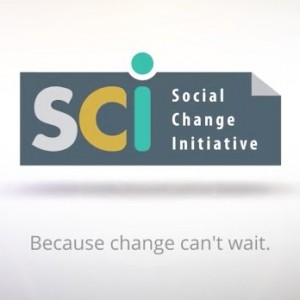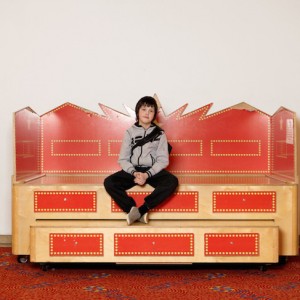Human Rights & Reconciliation Protecting Rights & Promoting Reconciliation
Building a Society That Protects All
Northern Ireland | 1991 - 2014
When Atlantic began its grantmaking Northern Ireland in 1991, the violence known as the Troubles had been going on for more than two decades. Because of the conflict, Atlantic’s first grants were limited in scope and focused on promoting dialogue aimed at broadening political debate in deeply divided society.
Beginning in 1995, after most paramilitary organizations had made initial ceasefire declarations, the foundation stepped up its efforts and concentrated its grantmaking to help Northern Ireland move toward becoming a more reconciled society that protects human rights and promotes equality.
What We Learned From This Work
Key to effective peace-building and reconciliation is supporting progressive forces at the grassroots level, including those closest to the conflict.
Communities most harmed by conflict also suffer from inequalities that need to be addressed in order to move toward peace.
To reduce the chance of violence in the future, mechanisms and structures need to be put in place to protect human rights, address inequalities and promote reconciliation.
The Way Forward
Atlantic's work focused on promoting reconciliation, stability and protection of human rights.
Building the Peace
Working with organizations such as Intercomm and Suffolk Lenadoon Interface Group, Atlantic directed $30m toward promoting reconciliation among the disaffected groups most deeply involved in conflict.
Keeping Human Rights in Focus
Atlantic provided core support to groups such as Committee on the Administration of Justice and Participation and the Practice of Rights to ensure government can better fulfill the human rights commitments specified in the Good Friday agreement.
Breaking Down Divisions Early
To help break down divisions within Northern Ireland’s education system, Atlantic supported the Integrated Education Fund and initiatives to promote shared education as well as a joint initiative with the Northern Ireland executive.
Here’s Who’s Helping Write the Next Chapter in This Continuing Story
United for the Common Good
Summaries of Case Studies, Evaluations & Reports
-
Funding in Conflict-Affected Environments
Source: The Social Change Initiative
This guide explores how can funders can support activities and initiatives designed to end conflicts and promote peacebuilding. While many foundations are understandably wary about intervening in conflicts, Funding in Conflicted-Environments offers guidance on how to help mitigate some of those concerns. Included are the…
Resource type: Research Report
-
Northern Ireland
This book tells the story of Atlantic’s grantmaking in Northern Ireland, where it helped promote peace, reshape education, improve public services, and strengthen organizations to promote and protect people’s rights.
Resource type: Insight
-
Ageing, Health and Conflict: An Investigation of the Experience and Health Impact of ‘Troubles-Related’ Trauma
Source: Bamford Centre for Mental Health and Wellbeing and the Northern Ireland Centre for Trauma & Transformation Trust
Some older people in Northern Ireland who had traumatic experiences during the violent “Troubles” are still suffering 30 to 40 years later from mental health conditions, according to new research. This study examined the experience and impact of ‘Troubles-related’ trauma among individuals aged 45 and older.…
Resource type: Research Report
-
Shared Education Improves Learning in Northern Ireland
[atlpvideo src="https://www.youtube.com/embed/5gQZq8zehbk" height="360" width="640"]Sharing education involves two or more schools from different community backgrounds working together to share expertise, classes, facilities and teachers.[/atlpvideo] Northern Ireland is a deeply divided society and the education system reflects the level of separation between Protestant and Catholic communities. More…
Resource type: Grantee Story
-
Community-based Restorative Justice in Northern Ireland
Source: Community Restorative Justice Ireland and Northern Ireland Alternatives
This report presents independent evaluation findings regarding the work of Community Restorative Justice Ireland (CRJI) and Northern Ireland Alternatives (NIA) in facilitating and promoting non‐violent community alternatives to paramilitary punishment attacks and exclusions relating to alleged localised crime and anti‐social behaviour. The Institute of Criminology…
Resource type: Evaluation
-
Breaking Down Barriers Through Education
Students in Fermanagh Trust's Shared Education Programme. Photo: Fermanagh Trust ''That's a nice idea, but are you insane?" That was what Tony Gallagher, professor of education and pro-vice chancellor of Queen's University Belfast, commonly heard when he suggested in 2006 that predominantly Roman Catholic and…
Resource type: Grantee Story
You Might Also Be Interested In
-
Advancing Children’s Rights
Children have rights to education, health, adequate standard of living, protection from abuse and neglect, and equality and non-discrimination.
-
Prevention & Early Intervention
Heading off problems before they take root in children’s lives can help young people grow and flourish.
-
Immigration & Migration
We've supported groups advocating for reform and working to build opportunity, provide hope and promote dignity for millions.
-
Human Rights & Reconciliation
Atlantic supported efforts to build the capacity of organizations working to protect human rights and to promote reconciliation.






